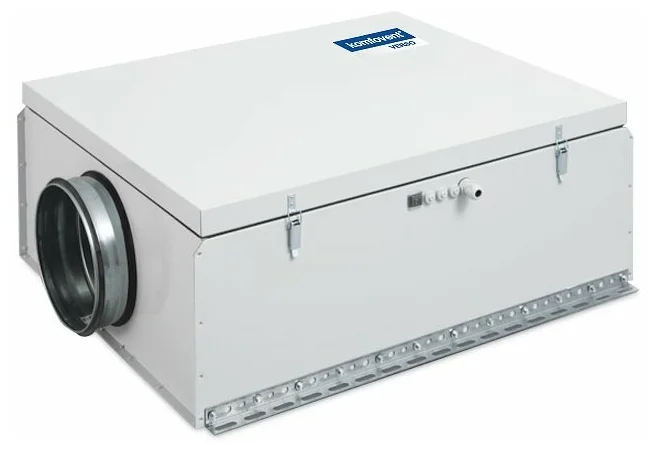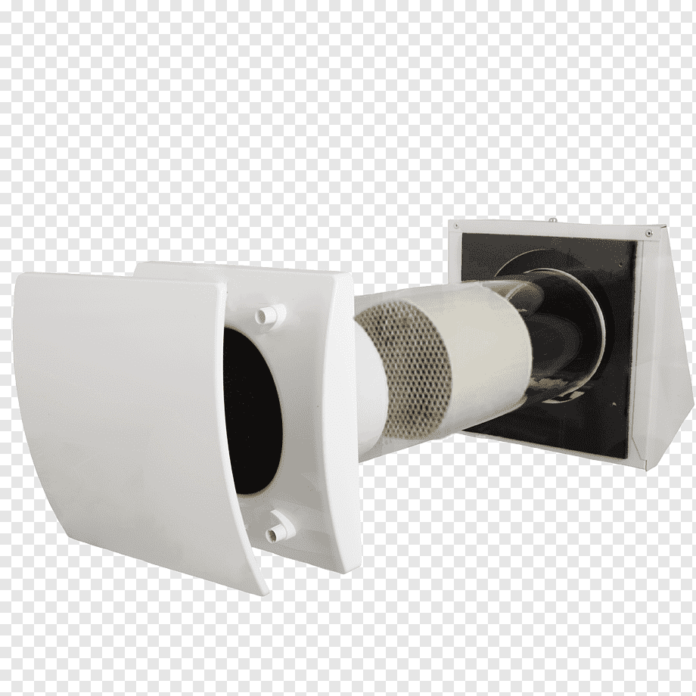Are you tired of high energy bills eating away at your budget? It’s time to unlock the potential savings that mechanical heat recovery can offer. By harnessing the power of this innovative technology, you can significantly reduce your energy consumption and lower your monthly bills. This blog post will explore how mechanical heat rescue works, its benefits for energy efficiency, and practical tips on integrating this sustainable solution into your home or business. Say goodbye to skyrocketing energy costs and hello to a more sustainable and cost-effective way of heating and cooling your space.
Understanding Mechanical Heat rescue
Understanding mechanical heat rescue is essential for homeowners looking to lower their energy bills and increase energy efficiency in their homes. Mechanical heat rescue systems work by capturing and recycling the heat that is normally lost through ventilation systems.
This process involves using a heat exchanger to transfer the heat from the stale air leaving the building to the fresh incoming air, thereby preheating it and reducing the workload on the heating system. Homeowners can significantly reduce their energy consumption and decrease their utility bills by implementing mechanical heat rescue.
These systems are particularly effective in colder climates with high heating costs. Mechanical heat rescue systems also help improve indoor air quality by reducing humidity and removing pollutants, creating a healthier and more comfortable living environment. To fully unlock the savings potential of mechanical heat rescue, homeowners should consult a professional to determine the best system for their needs and ensure proper installation and maintenance.
Benefits Of Mechanical heat recovery system For Energy Efficiency
Mechanical heat recovery system offer an array of benefits when it comes to improving energy efficiency and reducing energy bills. One of the primary advantages is the ability to capture and reuse heat that would otherwise be lost during the ventilation process. By recovering this heat and using it to preheat incoming fresh air, mechanical heat rescue systems help reduce the workload on heating systems, leading to lower energy consumption and cost savings.
Additionally, mechanical heat rescue contributes to maintaining a comfortable indoor environment by providing a constant supply of fresh, filtered air while removing stale air. This balanced ventilation enhances indoor air quality and promotes a healthier living or working environment for occupants.
Moreover, mechanical heat rescue systems are known for their sustainability benefits, as they help reduce a building’s carbon footprint by utilizing waste heat effectively. Homeowners and businesses can participate in environmental conservation efforts by opting for mechanical heat rescue while enjoying long-term energy savings.
In conclusion, embracing mechanical heat rescue technology is a smart investment that can deliver significant energy efficiency improvements, cost savings, enhanced indoor air quality, and environmental sustainability.
How To Integrate Mechanical heat recovery unit Into Your Home Or Business?
Integrating Mechanical heat recovery unit into your home or business can reduce energy bills and increase efficiency. One of the first steps in the process is to assess your current heating and cooling systems to determine where heat recovery can be implemented effectively. Mechanical heat rescue systems capture and reuse heat that would otherwise be wasted, such as in ventilation systems or exhaust air.
To integrate mechanical heat rescue into your property, you may need to work with an experienced HVAC professional who can assess your specific needs and recommend the best system for your space. Common mechanical heat rescue systems include heat exchangers, heat pumps, and ventilation systems with heat recovery units. These systems can be tailored to suit different building sizes, layouts, and energy requirements.
When installing a mechanical heat rescue system, it’s essential to consider factors such as energy efficiency, maintenance requirements, and upfront costs. While the initial investment may be higher than traditional heating and cooling systems, the long-term savings in energy bills and reduced environmental impact make it worthwhile. Integrating mechanical heat rescue into your home or business can unlock significant savings while creating a more sustainable and efficient property.
Types Of Mechanical ventilation heat recovery systems
Mechanical ventilation heat recovery systems offer an innovative solution to reduce energy consumption and lower utility bills. Various mechanical heat rescue systems are available, each designed to suit different applications and environments.
One common type is the heat recovery ventilator (HRV), which exchanges heat between the indoor and outdoor air streams, helping to maintain a comfortable indoor temperature while saving energy. Another popular option is the energy recovery ventilator (ERV), which transfers heat and moisture, ensuring a balanced and healthy indoor environment.
Additionally, heat pump systems utilize the ambient air or ground as a heat source, effectively reducing energy consumption for heating and cooling. Homeowners and businesses can make informed decisions to unlock savings and reduce their carbon footprint by understanding the different types of mechanical heat rescue systems and their capabilities.
Benefits
Mechanical heat rescue systems offer many benefits that can positively impact energy bills and efficiency. One of the primary advantages of these systems is their ability to capture and recycle heat that would otherwise be wasted, significantly reducing the energy needed to maintain a comfortable indoor temperature.
This means lower energy bills for you in the long run. Additionally, mechanical heat rescue systems help reduce your carbon footprint by utilising waste heat and contribute to a more sustainable environment.
Furthermore, these systems can also enhance indoor air quality by providing fresh, filtered air while efficiently managing humidity levels. Investing in mechanical heat rescue technology is a smart and environmentally friendly way to unlock savings and improve your home’s energy efficiency.
Considerations For Implementation of Mechanical ventilation and heat recovery
When considering the implementation of Mechanical ventilation and heat recovery to lower your energy bills, there are several key considerations to keep in mind. First and foremost, it’s essential to assess the specific needs and requirements of your home or building. Consider factors such as the size of the space, the existing heating and cooling systems, and the overall energy usage patterns. Additionally, you should evaluate the potential cost savings and return on investment associated with implementing a mechanical heat rescue system.
Another important consideration is the type of mechanical heat rescue system that best suits your needs. Various options include heat exchangers, heat pumps, and ventilation systems. Each type has its own benefits and drawbacks, so it’s crucial to research and compare the different options to determine the most suitable choice for your situation.
Furthermore, you should consider the installation and maintenance requirements of the mechanical heat rescue system. Factor in the upfront costs, installation process, and ongoing maintenance to ensure that the system is cost-effective and practical for your property.
 The Importance Of Heat Recovery In Energy Efficiency
The Importance Of Heat Recovery In Energy Efficiency
Heat recovery is a critical aspect of energy efficiency that is often overlooked. It refers to the process of capturing and reusing heat that is typically lost during energy production. This is particularly important in industrial settings where large amounts of heat are generated during manufacturing processes. By implementing heat recovery systems, companies can significantly reduce their energy consumption and costs, making their operations more environmentally friendly and sustainable.
One of the main benefits of heat recovery is its ability to reduce the reliance on fossil fuels. By capturing and reusing heat, companies can reduce the amount of energy needed to power their operations, thus reducing their carbon footprint. This is especially important as the world continues to face the effects of climate change and the need for more sustainable energy sources. Heat recovery also has economic benefits.
Save Money On Their Utility Bills
By reducing energy consumption, companies can save money on their utility bills. Additionally, implementing heat recovery systems can also make a company more competitive in the market, as consumers are becoming increasingly environmentally conscious and are more likely to support companies that prioritize sustainability.
Moreover, heat recovery can also improve the overall efficiency of a company’s operations. By reusing heat, companies can reduce the strain on their equipment and extend its lifespan, ultimately reducing maintenance and replacement costs.
By carefully considering these key factors and conducting thorough research, you can make an informed decision about implementing mechanical heat rescue to unlock savings and lower energy bills.
FAQs
1. What Is Mechanical Heat rescue, And How Does It Work?
Meckhanical heat rescue is a process that captures and reuses heat that would otherwise be lost during activities like ventilation, industrial processes, or appliance operation. By transferring this heat to another system or space, mechanical heat rescue improves energy efficiency and reduces the need for additional heating or cooling.
2. How Can Mechanical Heat rescue Benefit Me?
Mechanical heat rescue offers numerous benefits, including lower energy bills, reduced greenhouse gas emissions, and improved indoor comfort. By recycling wasted heat, this technology can help you save money while minimizing your environmental footprint.
3. Is Mechanical Heat rescue Suitable For Residential Applications?
Mechanical heat rescue systems can be installed in residential properties to enhance energy efficiency and reduce heating and cooling costs. From simple ventilation heat recovery units to more advanced systems, options are available to suit various home sizes and configurations.
4. What Maintenance Is Required For Mechanical Heat rescue Systems?
Regular maintenance is essential to ensure optimal performance and longevity of mechanical heat rescue systems. Tasks may include filter replacement, cleaning of heat exchangers, and inspection of components to promptly identify and address any issues.
5. How Can I Determine If Mechanical Heat rescue Is Right For My Property?
To determine if mechanical heat rescue is a suitable solution for your property, consider factors such as your current energy consumption, heating and cooling needs, budget, and available space for system installation. Consulting with an energy efficiency specialist can provide valuable insights tailored to your circumstances.
Conclusion
In conclusion, mechanical heat rescue presents a practical and efficient solution to lower energy bills and promote sustainability in residential and commercial buildings. Mechanical heat rescue systems can significantly reduce energy consumption and operating costs by harnessing the wasted heat produced during various processes and utilizing it to preheat incoming fresh air. Not only does this technology help in creating a more energy-efficient environment, but it also contributes to a reduction in greenhouse gas emissions, making it a win-win situation for both homeowners and the environment. Embracing mechanical heat rescue as a part of your energy-saving strategy can lead to long-term savings, improved indoor air quality, and a greener footprint for the future. So, consider integrating mechanical heat rescue systems into your building design or retrofitting existing structures to unlock substantial savings and environmental benefits.
| Other Good Articles to Read |
| Skank Blogs |
| Unreal Blogs |
| Tba Blogs |
| All City Forums |
| Dany Blogs |
| Refuge Blogs |
| The Music Blogs |
| Key Forums |
| The Big Blog Theory |
| Joe Blogs |
| Blogs 4 Me |
| Blogs Emon |
| Related Business Listings |
| Contact Directory |
| Local Business Profiles |
